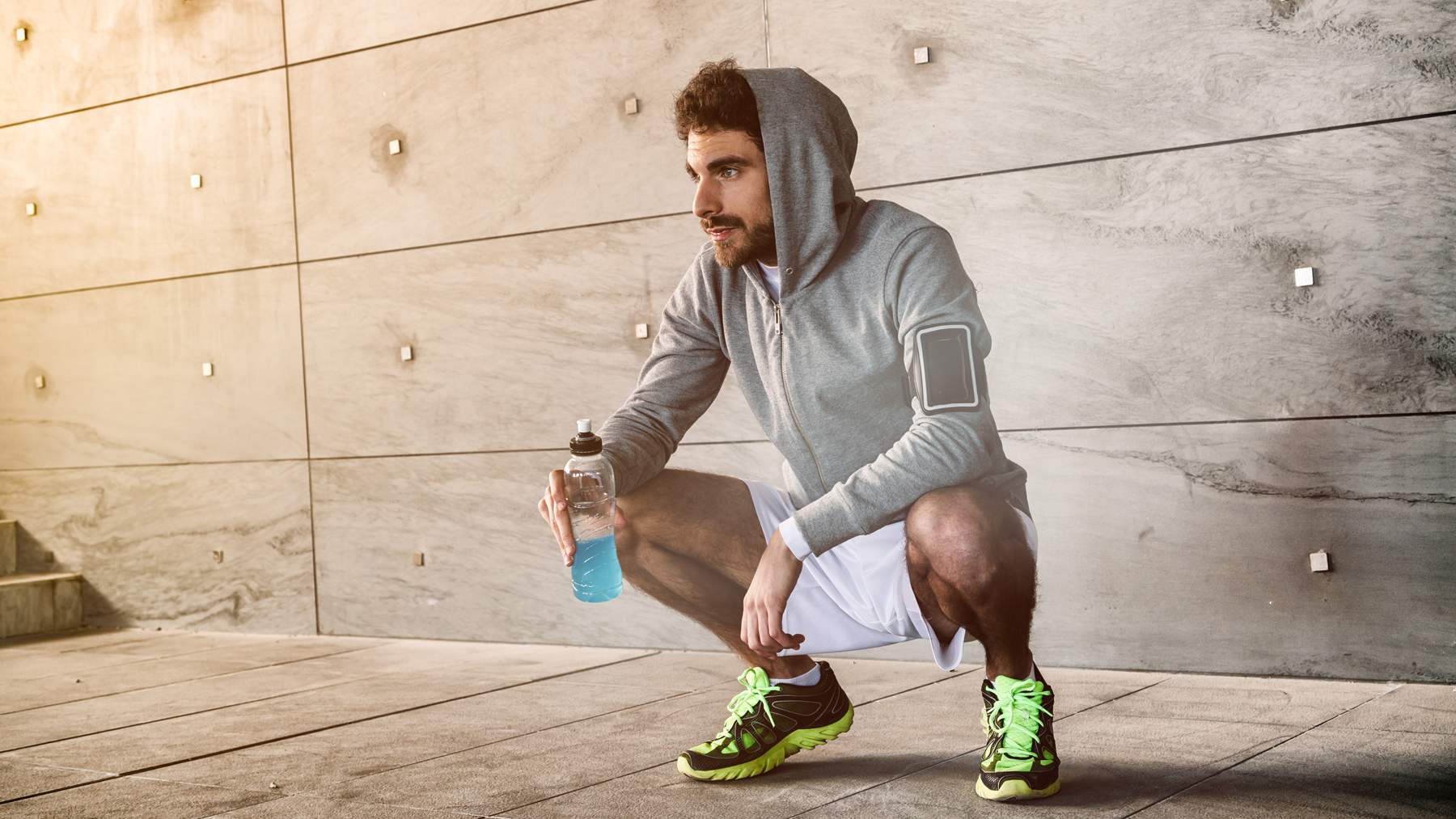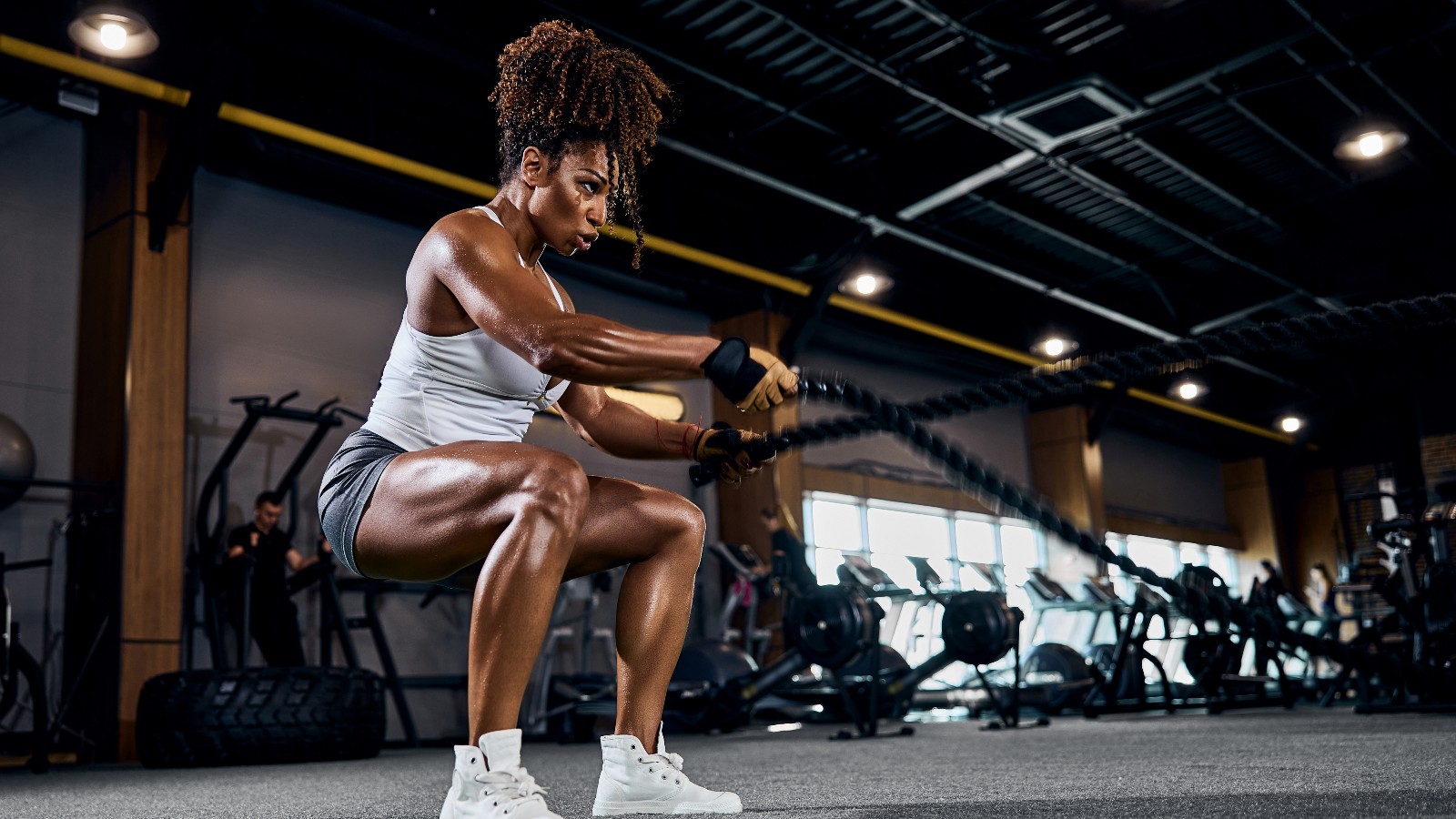Cardio vs weights: which is best for weight loss?
If you’re weighing up cardio vs weights and trying to decide which is best for trimming down, we have the answer


The cardio vs weights debate is often brought up when people discuss which is more effective for weight loss. While you are more likely to burn lots more calories during a cardio session, there’s a good chance your metabolism will stay elevated for longer after a workout with weights. Ultimately, one of the training techniques has greater benefits and should have longer-lasting results.
Weight training in whatever form you enjoy most - like calisthenics, circuits with a set of the best kettlebells, or learning how to deadlift properly - is a superior way to burn fat as well as tone, and build muscle at the same time. These two elements together are a great mix for achieving any weight loss goals. But while weights often win in the cardio vs weights debate this isn’t to say that completing a six-mile run in a pair of your best running shoes for women will have no effect on reducing body fat. This isn’t true at all but depending on your goals adding in some weight training could be what’s preventing quicker and lasting results from occurring.
Lots of things will impact your training such as sleep, stress, and heart health, and its good to know how each impacts losing weight. So with the help of two fitness experts, we have uncovered how these influence cardio vs weight training and how this can affect your weight loss journey.
Cardio vs weights: everything you need to know about cardio and weight loss
Cardio workouts, such as running on the best treadmills, spinning, or HIIT-based workouts will generally burn more calories compared to lifting weights, but personal trainer and online coach Daniel Harrod says that the long-term benefits aren't the same.
"Cardio should only be really utilized for fat loss when you have reached a plateau at a significantly reduced body fat percentage. Low-intensity steady-state cardio, such as walking, is generally less taxing on the body but unfortunately running and jogging do little to aid the fat loss process."
Daniel goes on to say that it won't have the same effect on your metabolism: "Not only does traditional cardio suffer from constrained energy expenditure but also fails to elicit the anabolic response people require to ensure their metabolism runs high and induce long-lasting body composition changes."
However, cardio can be great for other factors such as helping to boost your immune system and to keep your heart and bones healthy - so don't completely dismiss it. Read more about how cardio exercise helps our brains as well as weight loss and heart health on the site after reading this piece.
Start your week with achievable workout ideas, health tips and wellbeing advice in your inbox.
Immune wellbeing & cardio
Your immune system protects you from picking up viruses, while a low immune system could see you getting ill more regularly.
Nik Naidoo, a founder of fitness platform, GRNDHOUSE reveals the link between cardio and your immune system: "Exercise allows you to boost blood flow, clear out bacteria and reduce stress hormones. There is no limit to fitness and immunity, so trust the process and train."
In fact, one study by Appalachian State University showed a positive relationship between moderate exercise training and illness risk.

Heart health & cardio
If you want to maintain a healthy heart, like any muscle, you regularly have to take it outside its comfort level - and increasing your heart rate while doing cardio is one of the best ways to get that heart pumping.
"There's no denying the plethora of benefits cardio has on heart health," Daniel says, "From lowering blood pressure, improving blood flow, lowering cholesterol, and decreasing the risk of heart disease, regular aerobic exercise goes well beyond losing weight."
While Nik goes on to explain that the exercise doesn't necessarily need to be high intensity: "Think longer sessions at 50-70%, focusing on maintaining a steady output."
If you're a beginner, try out one of the best exercise machines to lose weight.
Weights vs cardio: everything you need to know about weight training and weight loss
Weights or resistance work can be great for fat loss, as increasing muscle mass will raise your metabolic rate, allowing you to burn more calories.
Daniel explains: "The muscle you build through lifting weights will preserve your metabolic rate when you are in a calorie deficit. An improved metabolic rate will lead to more calories being burned throughout the day and decrease your chances of stumbling into big fat loss plateaus."
While the fitness expert goes on to say that working out with weights will also lead to an 'afterburn': "This leads to more calories being burnt after you've finished exercising too - this figure isn't as large, and effective, as once thought, however, it still counts."
Once you've gained more muscle Daniel explains that it also leads to nutrient partitioning - where your body is better at storing food as muscle, rather than fat. While it's not just fat loss that weights are beneficial for - other benefits include improved bone health, sleep, and stress levels.
A post shared by Daniel Harrod (@danielharrodpt)
A photo posted by on
Sleep & weights
When we've completed a cardio workout, especially in the evenings, it can leave us on a high with adrenaline running through our bodies, however, weights and resistance work can improve sleep patterns, which in turn, can help you burn calories.
"When you lift weights, you stimulate an anabolic hormonal response which helps restore and build new muscle. This, in turn, improves sleep quality," says Daniel.
While a study, by the University of Southern Queensland, last year also said strength training can improve sleep. The study, which assessed 23,000 adults exercise and sleep patterns found that when participants had taken part in strength-based workouts their sleep was reported at improved levels.
Daniel adds: "Strength training can also help you fall asleep faster, spend more time in deeper sleep phases, and ensures you minimise the amount of waking you do each night."
"Even if you are replenishing your body well with fuel after a heavy session exercise, you may still notice towards the end of the day you begin to naturally wind down and feel tired," Nik says, "Sleep is also a game-changer for recovery and allowing your body to grow."
Stress & weights
High levels of the stress hormone cortisol can make you crave sugary foods, but resistance based workouts, including with weights, will help you manage your stress levels.
"Physical activity, particularly lifting weights, helps to release chemicals known as endorphins in your brain, which form when you're stressed as a way to counteract those negative feelings," says Daniel.
While studies have also been done to show that anxiety is less common in women who take part in resistance training. Less anxiety can put less stress on the body, resulting in less cortisol being released - a knock-on effect of weight gain.
Verdict: Cardio vs weights for weight loss?
Even though cardio-based exercises are great for overall health and fitness levels and will help you burn calories, the benefits of weight and resistance-based training far outweigh cardio when it comes to fat loss.
As your muscles grow from a weight-based workout your metabolic rate speeds up - allowing you to burn calories quicker. While the benefits don't stop there, studies show that stress levels and sleep quality is also improved with resistance-based exercises - meaning fat loss will be achieved quicker.
If you don't already include weights in your fitness routine try and add around 20 minutes to your workout or add two resistance-based workouts a week, alongside your cardio sessions.
Sarah is a freelance journalist who writes about fitness and wellbeing for the BBC, Woman&Home and Tech Radar. During lockdown she found her love of running outside again and now attempts to run around 50 miles a month. When it comes to other fitness, she loves a sweaty cardio session – although since she’s been working out from home she’s sure her downstairs neighbors aren’t too happy about it. She also loves to challenge herself - and has signed up to do hiking holidays, intense bootcamps and last year she went on her dream activity holiday: paddle boarding around deserted islands in Croatia. On her rest days, she loves to recover with a simple yoga flow session – the perfect antidote to her active fitness schedule.
